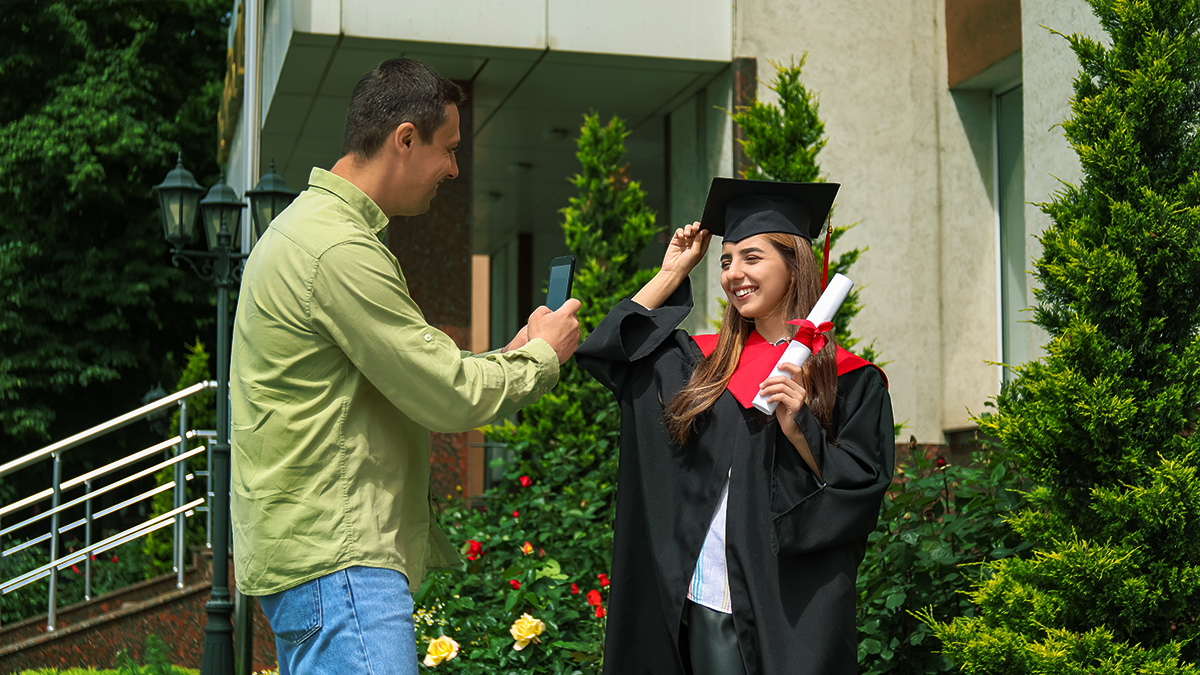It all started with a yurt. A mom on campus posted a photo of her daughters in front of their temporary home in a field. As a part of their Sukkot observance, they lived, ate, and gave thanks in the yurt for nearly a week. After asking around, three other families on campus celebrated similarly. This sparked something in our yearbook program: who else lives a life about which we know little? (Answer: everyone!) And this became the catalyst to broadening the scope of our off-campus student life coverage. Read on for tips on inclusive coverage for diverse holidays and celebrations that reflect the individuals in your halls.

Make Celebrations Individualized
When we work with our students to learn from one another, we model and facilitate courageous conversations. Many of us parents grew up with the adage: politics and religion never make for polite conversation. By focusing your interviews on the individual—versus the religious or cultural practice—you will see it through his/her eyes.
That said, it is never one student’s job to be the “ambassador” for their faith or home country. That’s why we prepared this list of questions to focus on the individual’s celebration. (Just think about how even members of your extended family celebrate birthdays differently!) The narrative that will unfold is about the student or staff member rather than a book report on the celebration. Avoid comparing or contrasting.
- What does [celebration] mean to you?
- What traditions does your family have?
- What food do you eat on [celebration]? What ingredients make it special?
- How do you prepare for [celebration]?
- What music makes it special for you? Why?
Diverse Covergage Ideas
Symbols spreads
Ideally, you’d have photographs of the decor that surrounds your students during the season. If that isn’t possible, use some stock images and position pull quotes of students describing how they use them.

Mini-Modules
Re-enactments of major events, such as Eid, that happen at a student’s place of worship can focus on the process, such as the challenges of memorizing lines or balancing rehearsals with school work. Lunar New Year festivals are another area to cover. Ask students about music, food, and decorations.
Winter or Spring “specials”
Plan ahead for one of the holiday seasons by interviewing students about their celebrations using the questions above.
Spring hosts Easter, Holi, Passover, Ramadan, and Vesak. Fall and winter are the seasons for Bodhi Day, Christmas, Diwali, Kwanzaa, Hanukkah, and Thanksgiving. (Please note, these are in alphabetical order, by season, not chronological as some days change because they are on a lunar calendar, not our American solar calendar.)
Research First
There’s an iconic episode from The Office, “Diwali” that gives us a picture of what could go wrong (and oh-so-right). In typical Michael Scott fashion, he fills a meeting with inaccuracy, and his actions and lack of truth impact those around him. Moral of the story: be Dwight.

As you prepare to extend coverage to include diverse holidays and celebrations, do a brief study of the symbols and history of the event. These are great classroom opportunities to brainstorm questions and talking points. You can even give a few non-examples to help students filter.
We’ll leave you with this bonus fact: Cinco de Mayo is not Mexican Independence Day. It’s not even a national holiday in Mexico.






